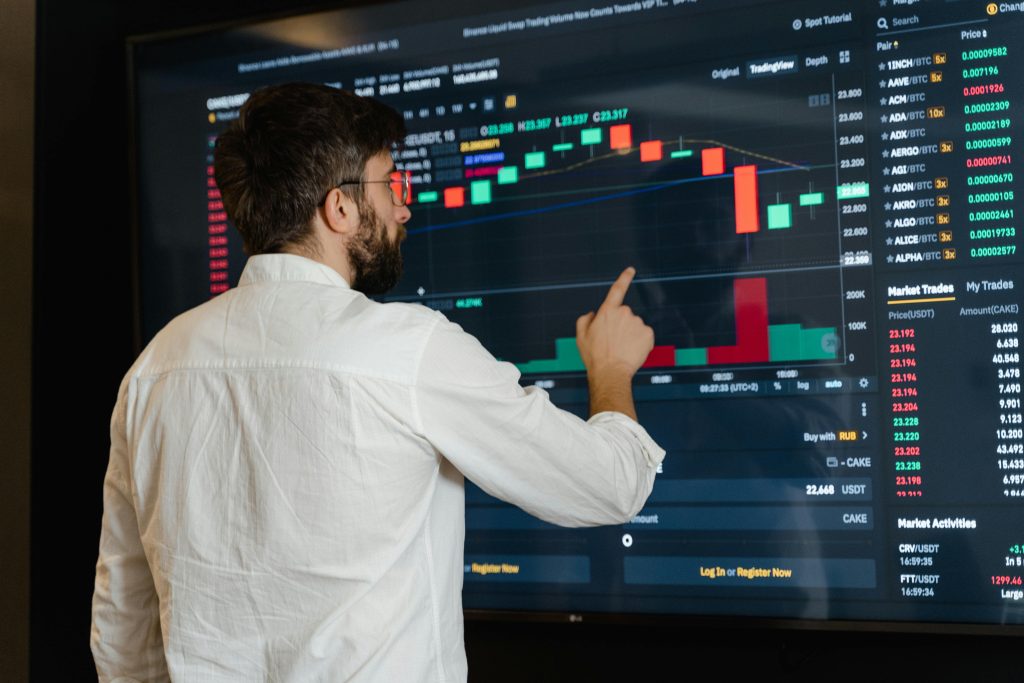Blockchain technology has rapidly transformed industries ranging from finance and supply chain to healthcare and gaming. The global blockchain market is expected to rise from USD 32.99 billion in 2025 to USD 393.45 billion by 2030, exhibiting an annual growth rate of 64.2% during the forecast period. With this growth comes the need for specialized professionals who can oversee complex blockchain initiatives from conception to deployment.
Enter the blockchain project manager, a role that blends technical understanding with traditional project management expertise to ensure blockchain projects are delivered successfully, on time, and within budget.
What is a Blockchain Project Manager?
A blockchain project manager is a professional responsible for planning, executing, and overseeing blockchain projects. Unlike traditional project managers, they must understand blockchain’s technical architecture, including decentralized networks, smart contracts, and crypto protocols.
Their role is critical in ensuring projects like decentralized finance (DeFi) platforms, enterprise blockchain solutions, and NFT marketplaces meet business objectives while maintaining security and compliance.

What Does a Blockchain Project Manager Do?
A blockchain project manager has many roles and responsibilities, including:
Project Planning and Scope Definition
They define objectives, timelines, budgets, and deliverables. They also break down complex blockchain initiatives into manageable phases, ensuring clear milestones and measurable outcomes for both technical and business teams.
Team Coordination
They manage cross-functional teams, including blockchain developers, UI/UX designers, business analysts, and stakeholders. By fostering collaboration and resolving conflicts, they ensure that each team member is aligned with project goals and responsibilities.
Risk Management
They identify potential security, compliance, and operational risks, and develop mitigation strategies. They also proactively anticipate challenges that may arise from evolving blockchain protocols or regulatory changes, minimizing disruptions to the project.
Quality Assurance
Ensuring that blockchain solutions are functional, secure, and user-friendly. They oversee testing processes, smart contract audits, and validation procedures to guarantee that deliverables meet both technical standards and business requirements.
Stakeholder Communication
They provide regular updates, facilitate decision-making, and manage expectations. Additionally, they translate complex blockchain concepts into clear, actionable insights for non-technical stakeholders, helping them understand progress, risks, and strategic value.
Essential Skills and Qualifications
A successful blockchain project manager combines technical knowledge with leadership skills:
- Technical skills: Familiarity with blockchain platforms like Ethereum or Hyperledger, smart contract programming (Solidity, Rust), and crypto protocols.
- Project management certifications: PMP, Agile, Scrum, or Prince2 can be valuable.
- Soft skills: Leadership, problem-solving, negotiation, and communication.
- Regulatory knowledge: Understanding security standards, GDPR, and industry-specific regulations.
- Financial acumen: Ability to manage budgets, forecast costs, and evaluate ROI for blockchain projects.
- Data analysis skills: Proficiency in interpreting blockchain metrics, analytics, and KPIs to inform project decisions.
A well-rounded combination of these skills ensures a blockchain project manager can successfully guide projects, balance technical and business requirements, and deliver measurable value.
Typical Daily Tasks and Workflows
Blockchain project managers juggle a variety of tasks each day, balancing both technical oversight and team coordination. Their mornings may begin with reviewing smart contract testing reports or analyzing project metrics, followed by sprint planning sessions and agile ceremonies to set priorities and organize workloads.
Throughout the day, they coordinate closely with developers, designers, and business teams, ensuring that everyone is aligned with project objectives. They continuously monitor progress using tools like Jira or Asana, update documentation and status reports, and proactively address any issues or blockers to keep timelines on track.
By maintaining this dynamic workflow, they ensure that project milestones are met while keeping stakeholders informed and confident in the project’s progress.
Challenges Faced in Blockchain Project Management
Blockchain projects often present unique hurdles that require careful planning, technical expertise, and proactive problem-solving to keep initiatives on track and successful.
Rapidly Evolving Technology
Blockchain technology is advancing at a breakneck pace, with new protocols, platforms, and frameworks emerging constantly. Keeping up with these developments is essential to ensure that projects use the most effective and secure solutions.
Integration Issues
Merging blockchain solutions with existing legacy systems can be complex and time-consuming. Project managers must carefully plan how decentralized networks will interact with traditional databases and business processes to avoid disruptions.
Security and Compliance Concerns
Blockchain projects often involve sensitive data and financial transactions, making them prime targets for cyberattacks. Ensuring compliance with regulations like GDPR or industry-specific standards is critical, requiring constant vigilance and risk mitigation strategies.

Uncertain Timelines
Estimating the time needed for blockchain projects can be challenging due to the technology’s novelty and complexity. Unexpected technical issues, changes in protocols, or stakeholder requirements can all affect delivery schedules.
Tools and Software Commonly Used
To manage complex blockchain projects effectively, a blockchain project manager relies on a combination of general project management tools and blockchain-specific software.
- Project Management: Jira, Trello, Asana
- Blockchain Development: Remix, Truffle, Ganache
- Collaboration: Slack, Microsoft Teams, Confluence
- Monitoring & Reporting: Custom dashboards for tracking milestones, resource usage, and KPIs
By leveraging these tools, blockchain project managers can streamline workflows, maintain clear communication across teams, and ensure that every aspect of the project is tracked, measured, and optimized for success.
How They Impact Project Success and ROI
A skilled blockchain project manager can significantly enhance the success of a blockchain project by reducing delays, avoiding budget overruns, and ensuring that solutions are secure, functional, and scalable.
By effectively coordinating teams and aligning technical development with business goals, they increase stakeholder confidence and drive adoption of the platform. Their guidance also promotes operational efficiency and encourages innovation, ultimately improving the project’s return on investment.
For instance, a well-managed DeFi project can attract more users and investments more quickly, thanks to a timely and secure launch that demonstrates reliability and professionalism.
Conclusion
The blockchain project manager plays a pivotal role in bridging the gap between cutting-edge technology and business objectives. By combining technical acumen with project management expertise, they ensure blockchain initiatives succeed, delivering value, security, and ROI.
As blockchain adoption grows across industries, demand for skilled blockchain project managers is expected to rise, making it a rewarding career path for professionals with both strategic and technical skills. For organizations looking to hire the right talent, specialized blockchain recruitment services can help identify and connect with qualified project managers who have the expertise to drive successful blockchain projects.
